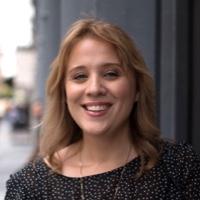How to get your photos ready for a redesign
A couple of weeks ago I talked about how a website redesign can feel rather overwhelming. Where do you start? How does the process work? What should you focus on doing? In that post, I focused on the branding first.
Today, I’m covering getting your photos prepared for a redesign.
Whether your website is small or large, a blog or a company website, I recommend the following process for before involving a design agency:
Step 1: Audit your photos
Look for photos which are:
- Dated e.g. team/bio/family photos, images with old technology or dates in them
- Missing e.g. new team members, new office location, new products, pages with lots of text without images which could use visual context
- Low-quality e.g. not retina/blurry, poor lighting, unprofessional, distracting backgrounds, inconsistencies
- Small
- Tired e.g. stock images found on multiple sites, overused images in marketing materials
Step 2: Obtain new photos
Decide if you need to organize a photo shoot with a professional photographer, or if can you handle this in-house.
If you decide to hire a photographer, choose one with experience in the type of photography you need. Don’t get a wedding photographer to take indoor team photographs. If you sell products, this is a specialty field which takes considerable skill to mount, light and shoot them.
In-demand photographers often book out many months in advance so be sure to let your web designer know when the photos will be available from the photographer.
If you decide to take the photos yourself, it is preferable to use a high-quality camera and tripod rather than a phone. Most photographs should be horizontal (landscape) in orientation. Use natural light as much as possible.
If you need stock images, you may wish to defer the decision-making to your designer. However, for specialty images which need your expertise to find images which are as authentic as possible, you may wish to provide photographs or a shortlist of suggestions to your designer.
If you are purchasing stock images yourself, buy them all together to get discounted rates. Download the highest quality, biggest image on offer.
If you want to reuse images which are already on your website but are quite small or low-quality files on there, locate the original files on a computer.
Provide the highest quality largest filesize source photographs you have to your web designer via Dropbox, Google Drive or similar. As a guide, each photo should be over 1MB in filesize.
Don’t provide every photo from the photoshoot, only a shortlist of ones which you like.
